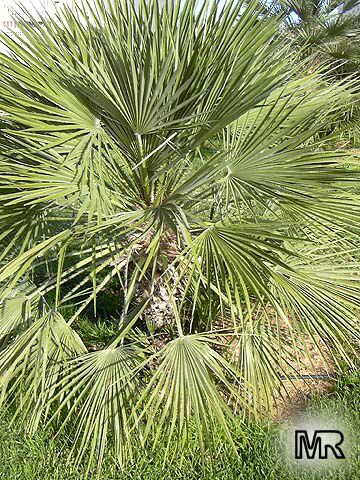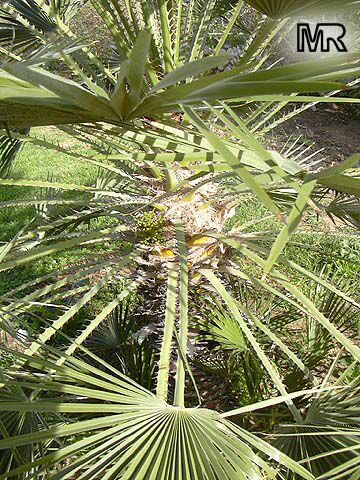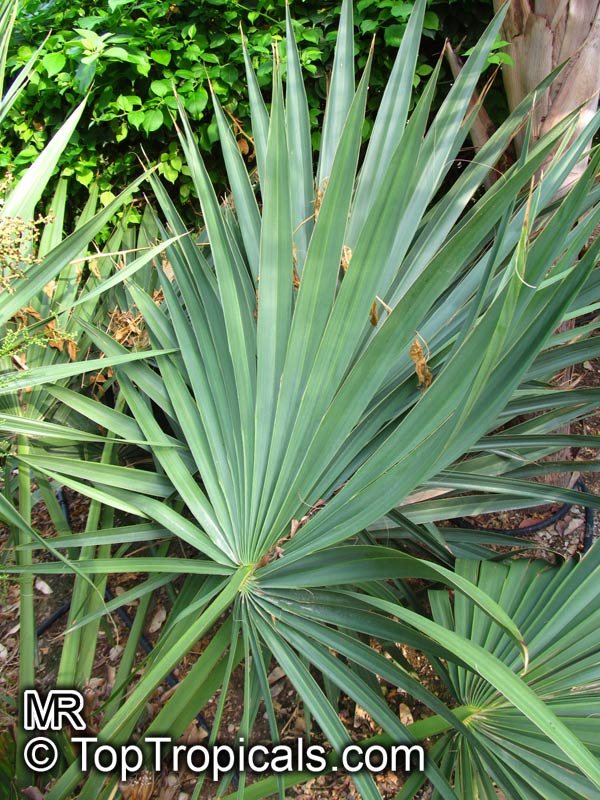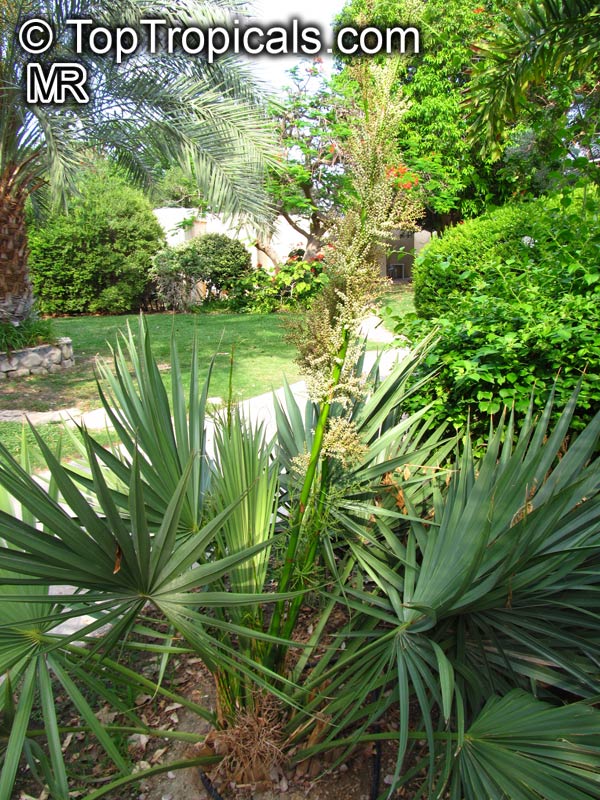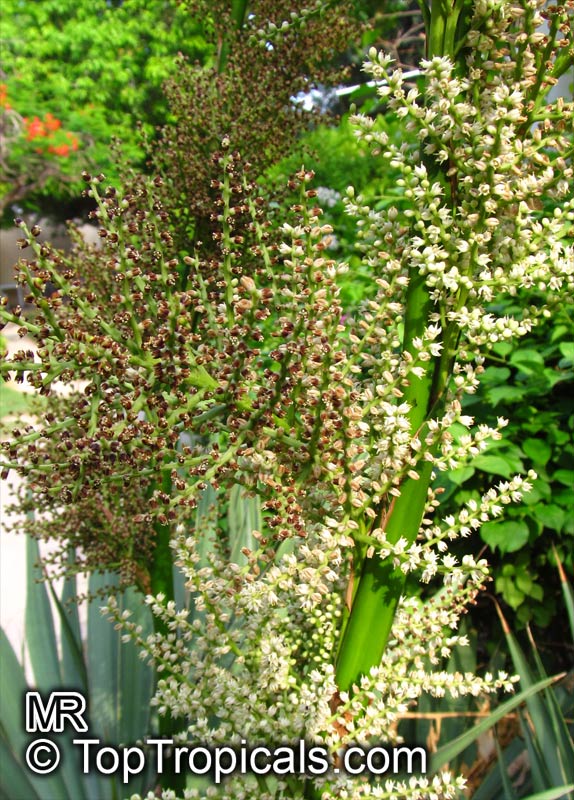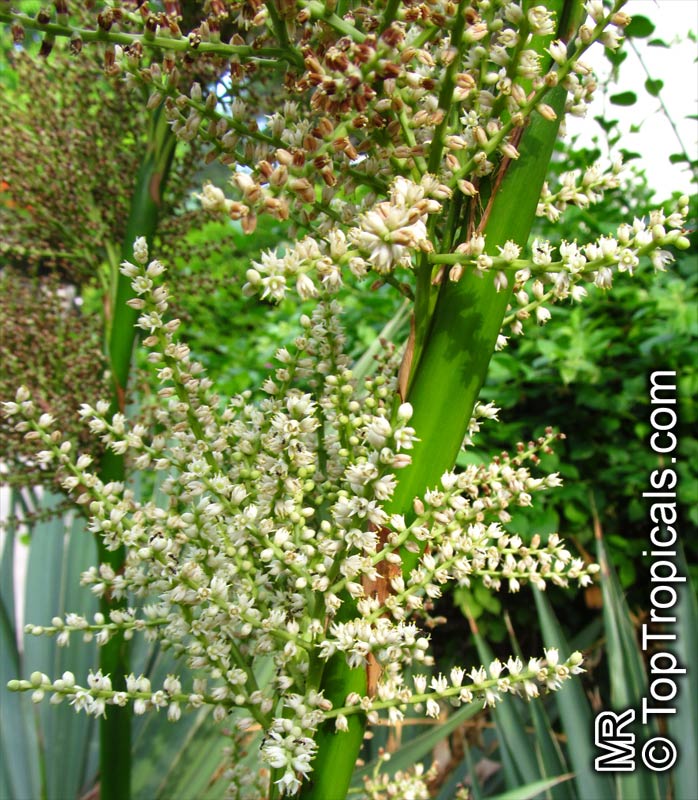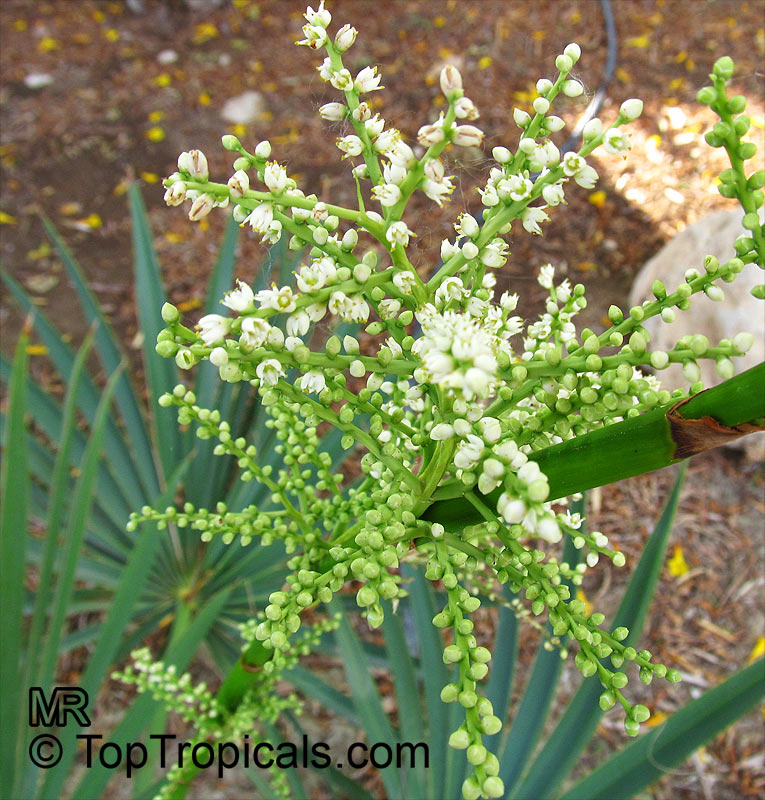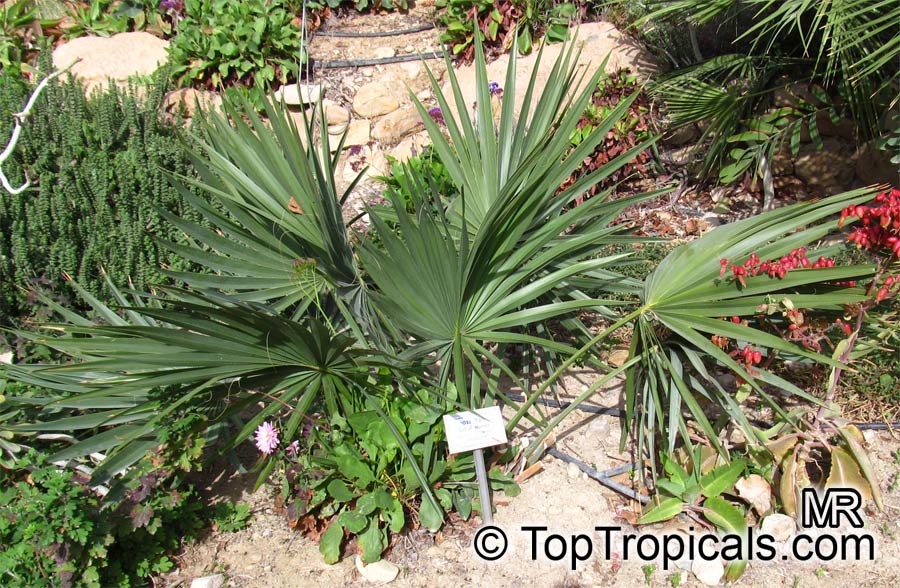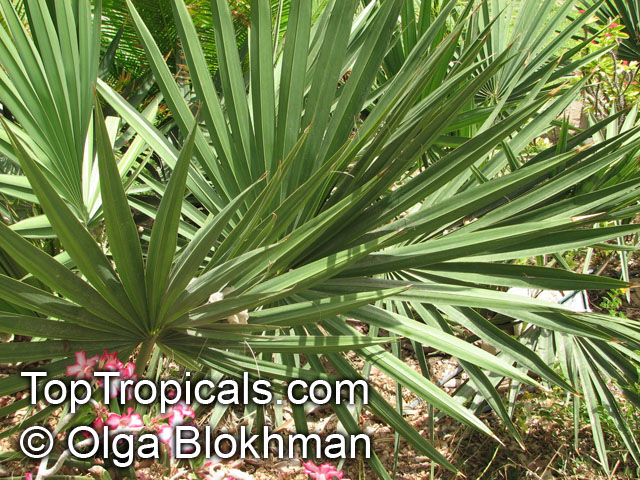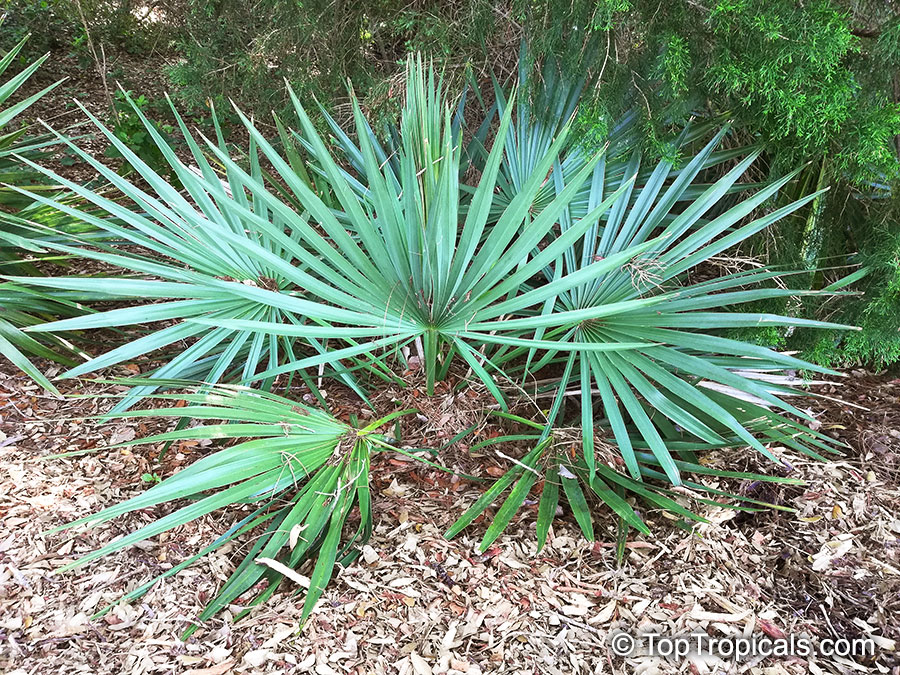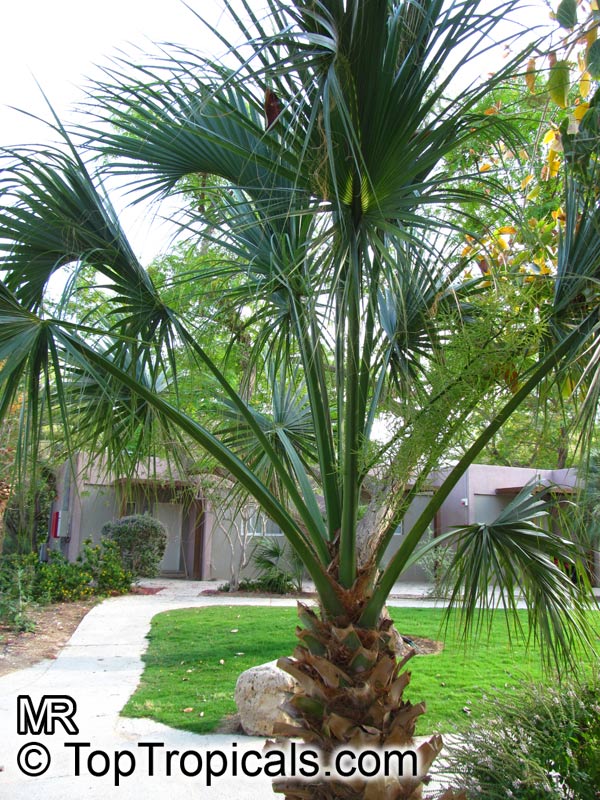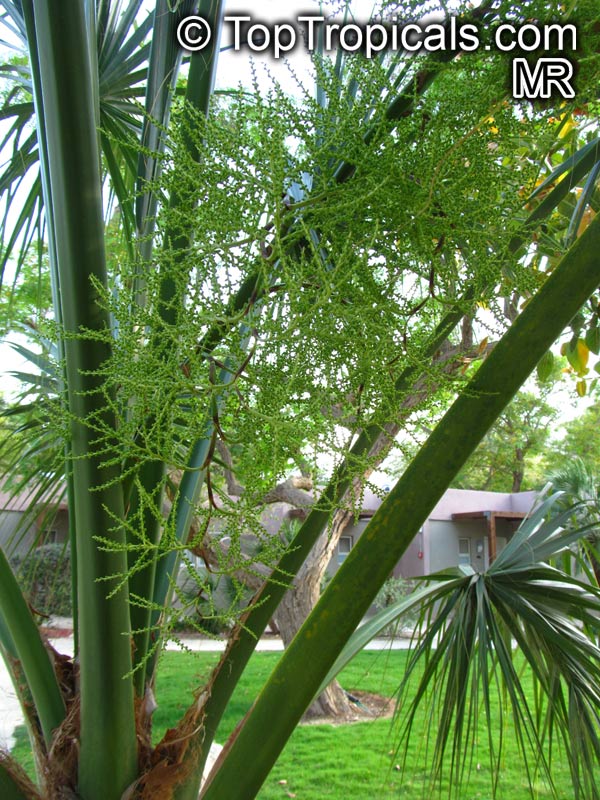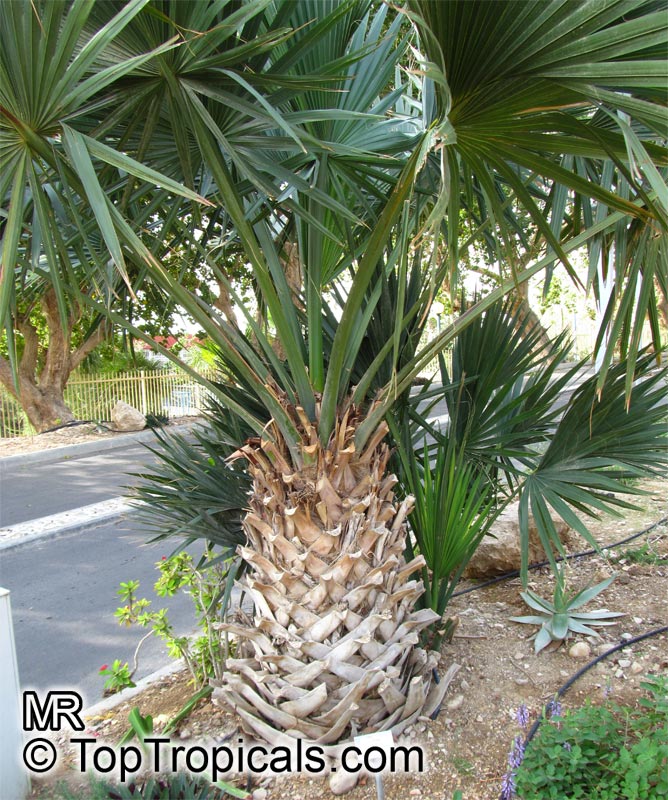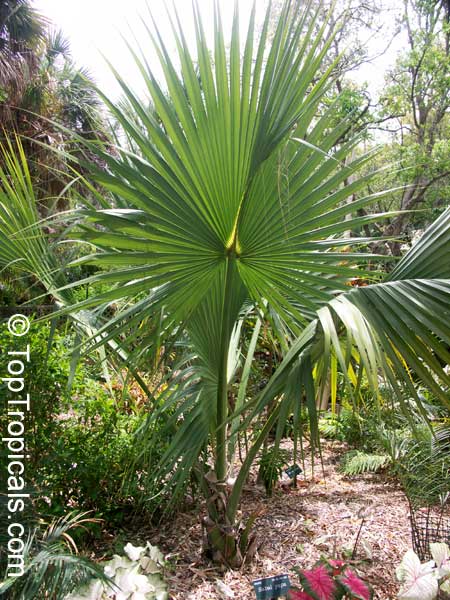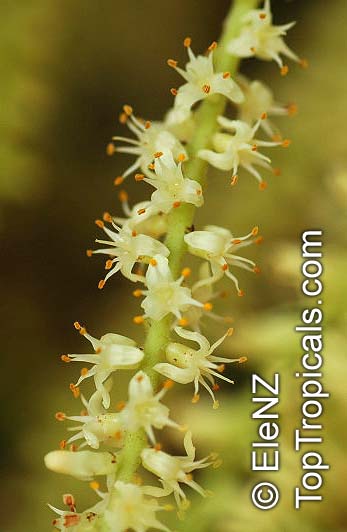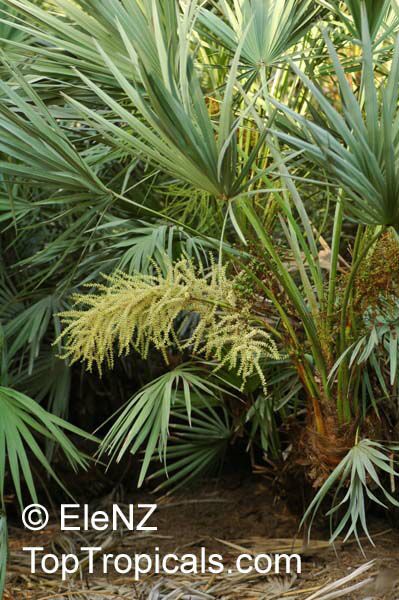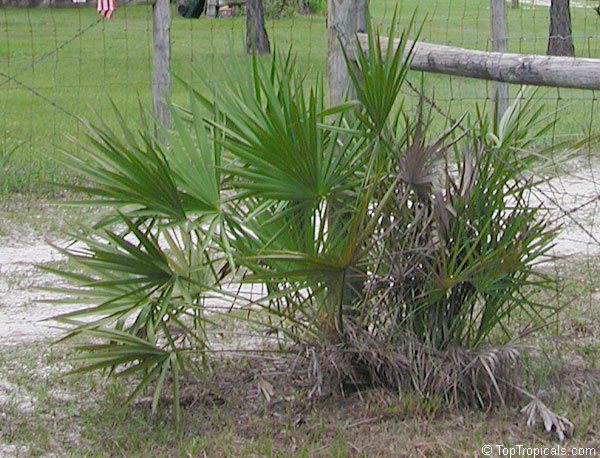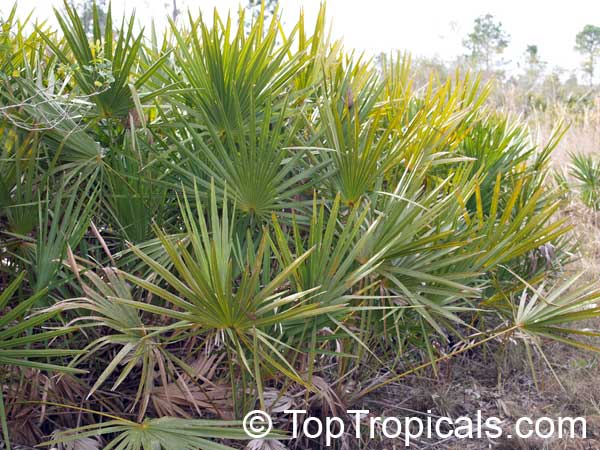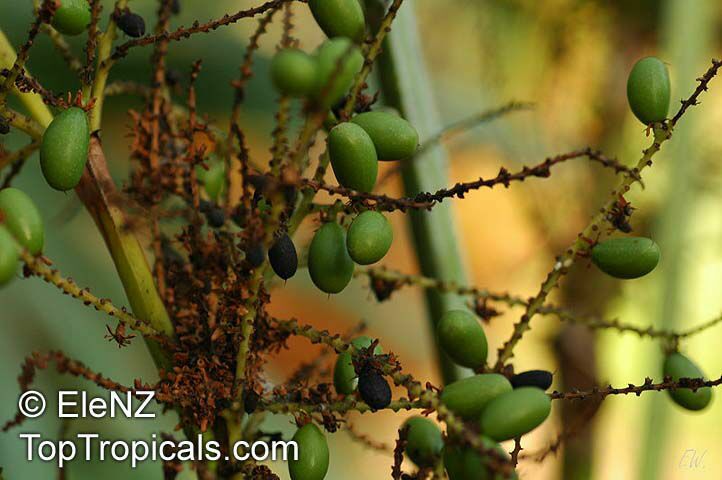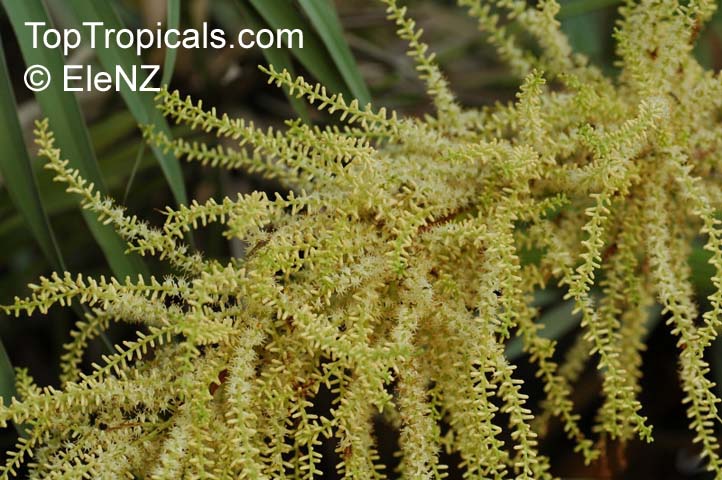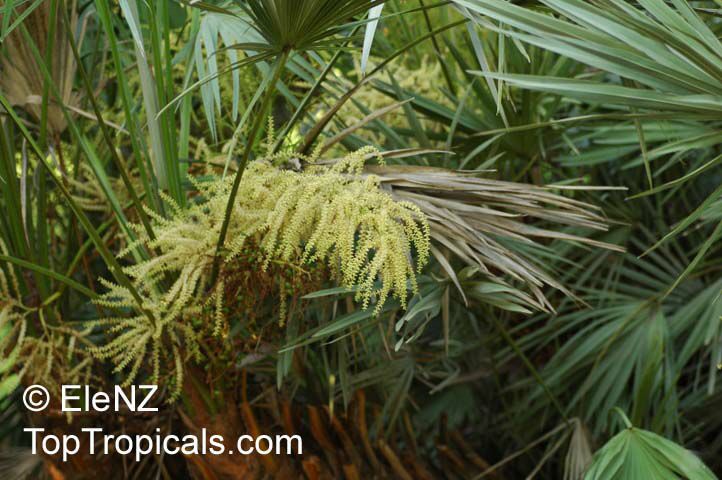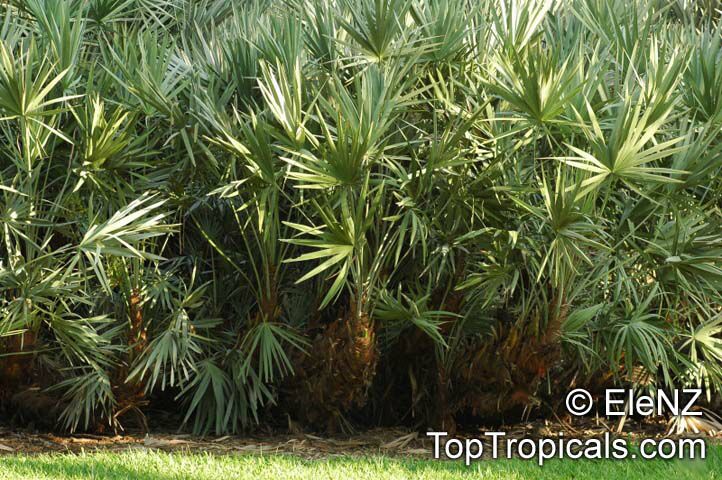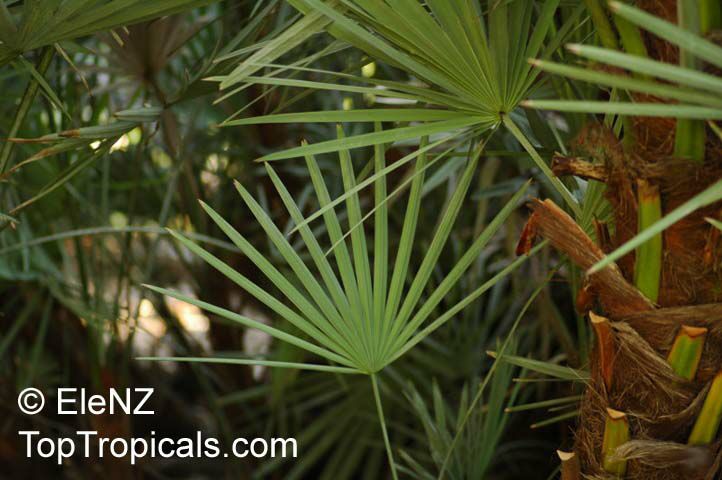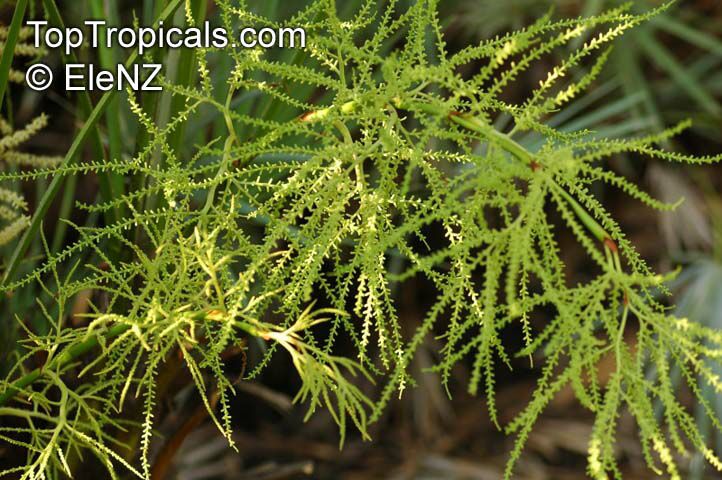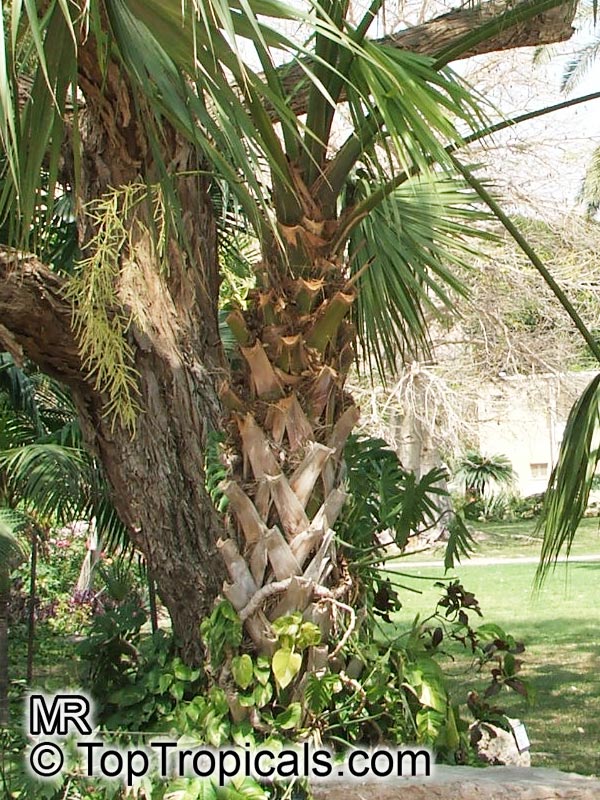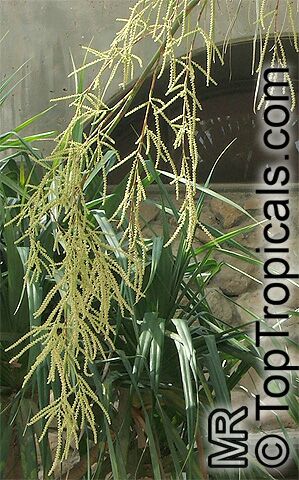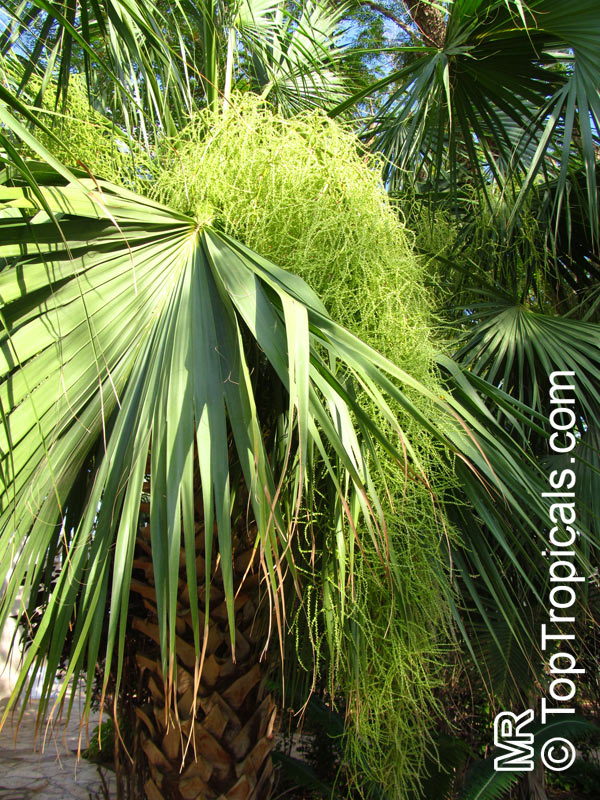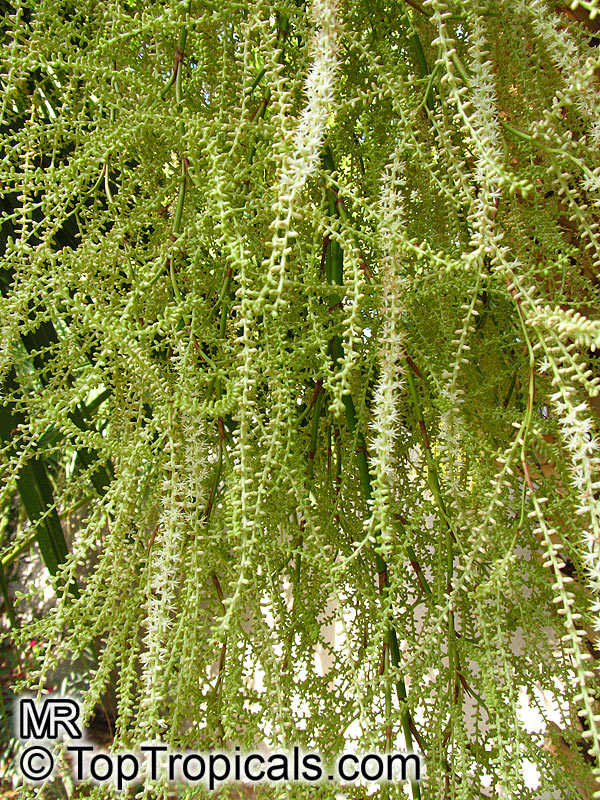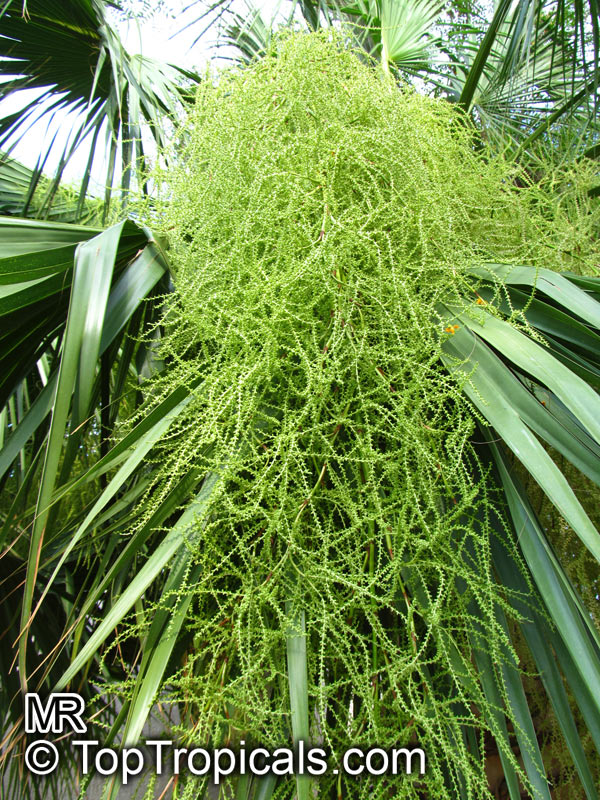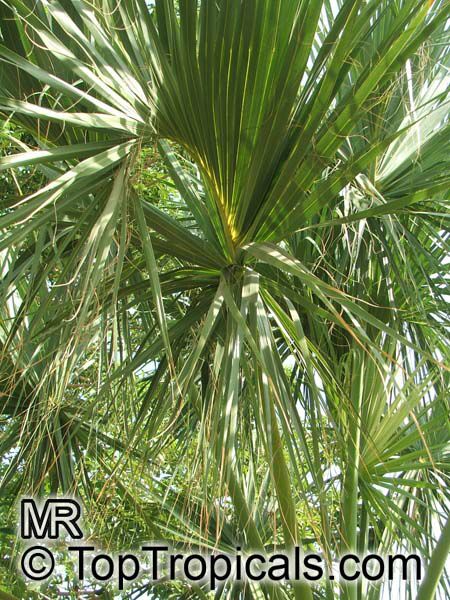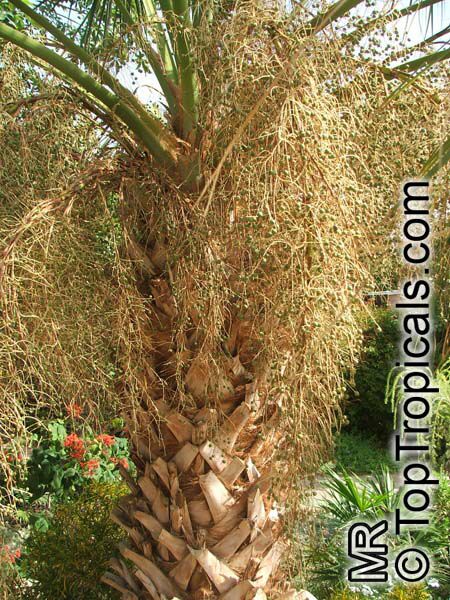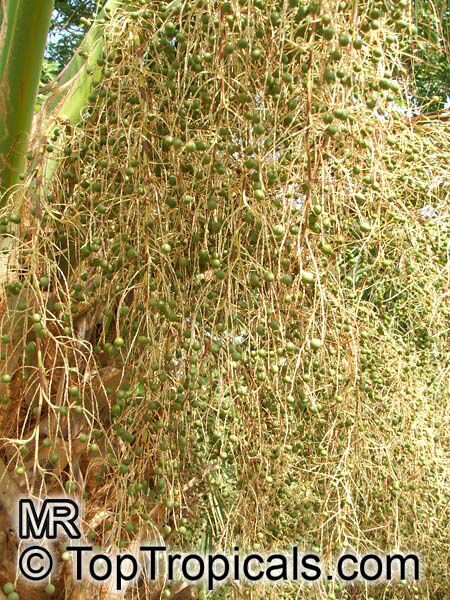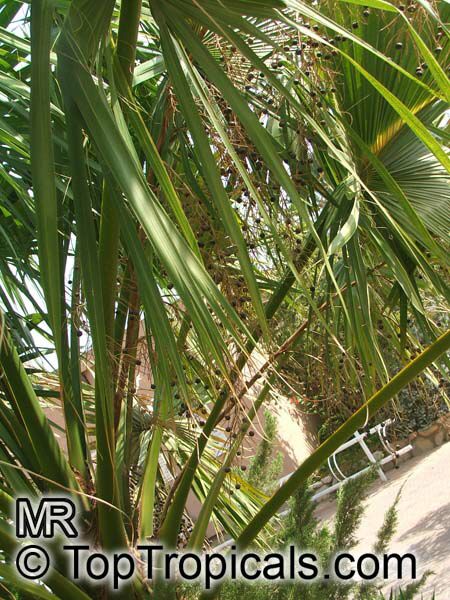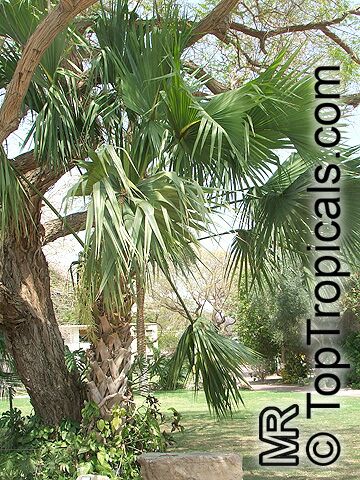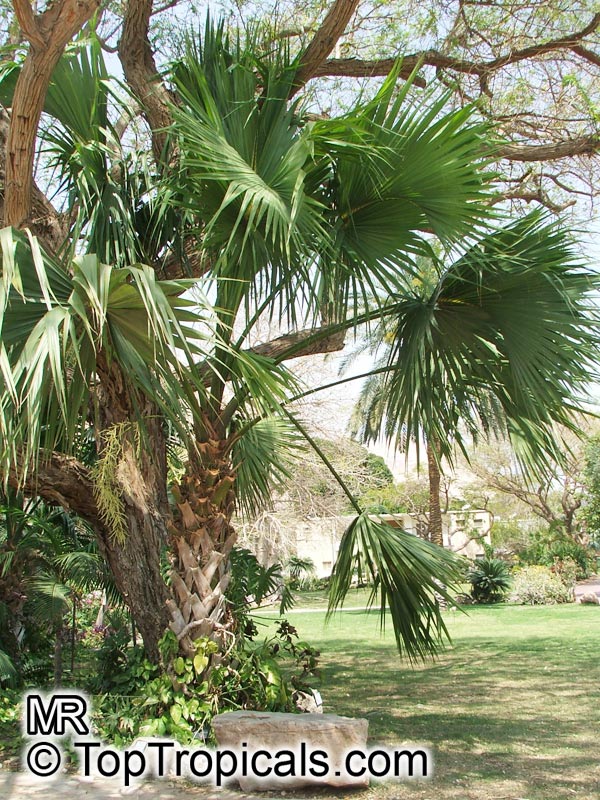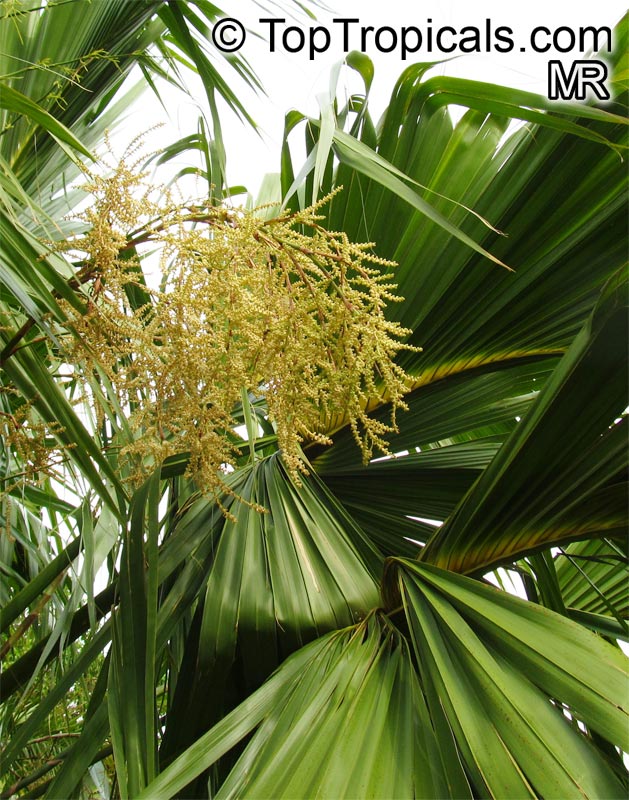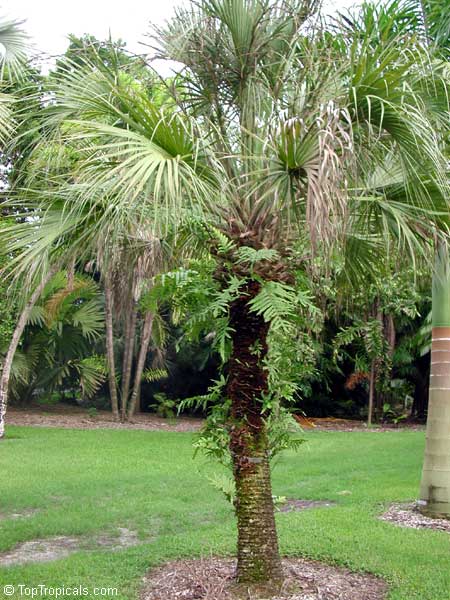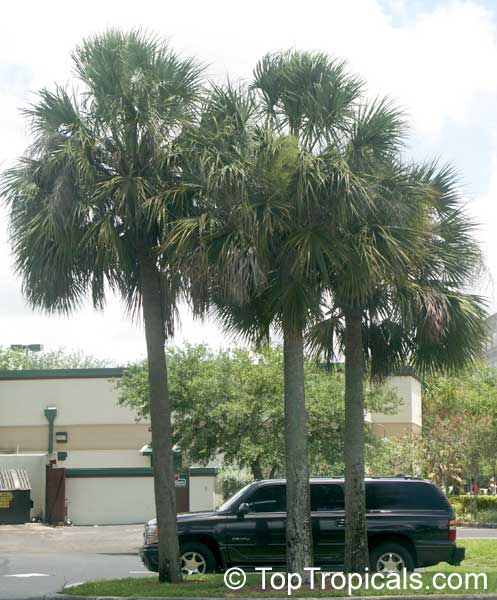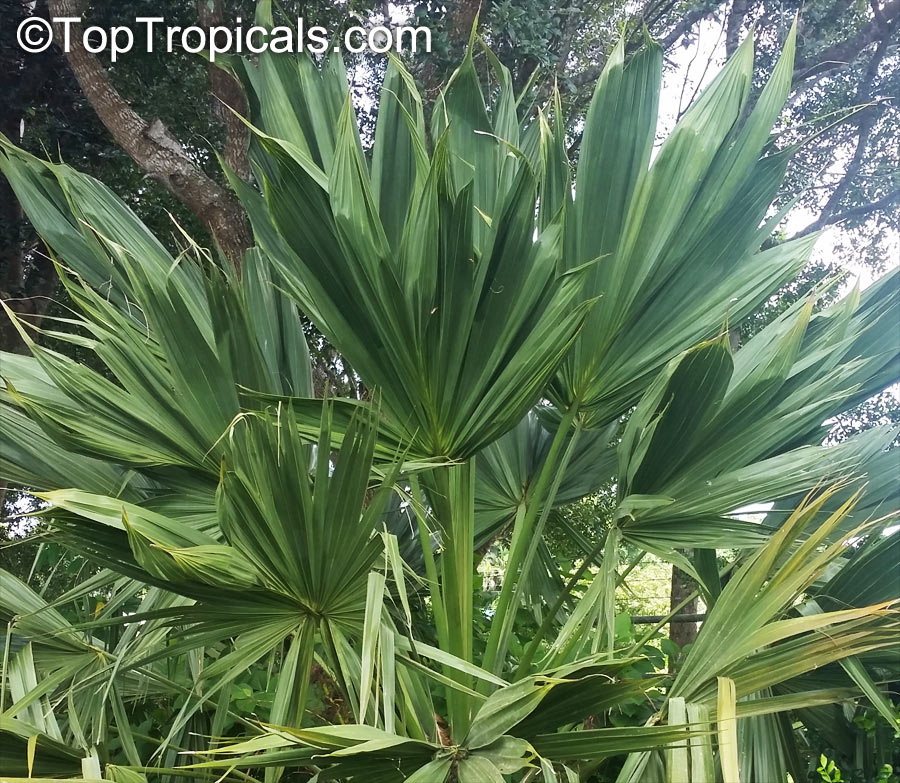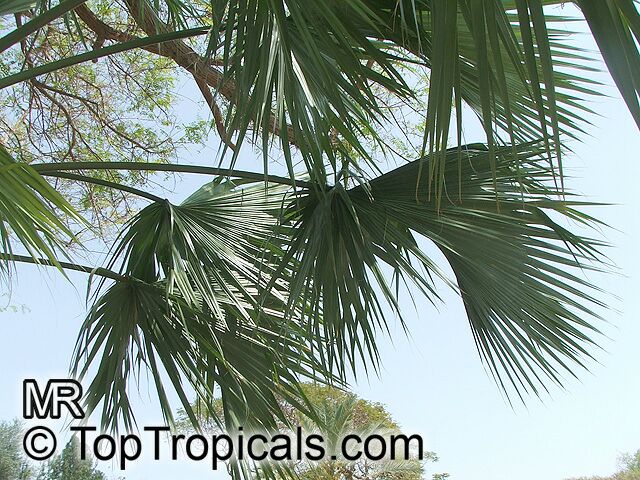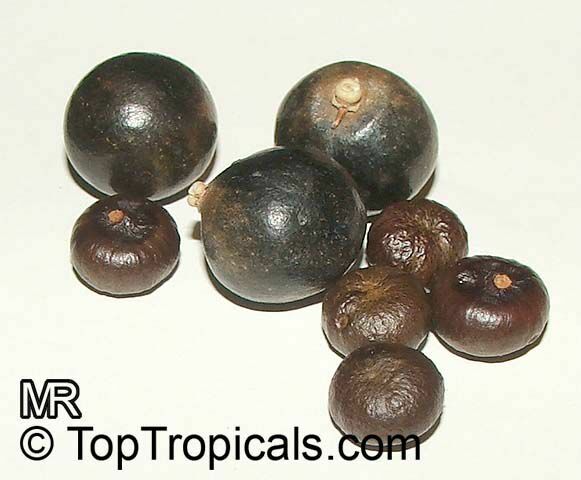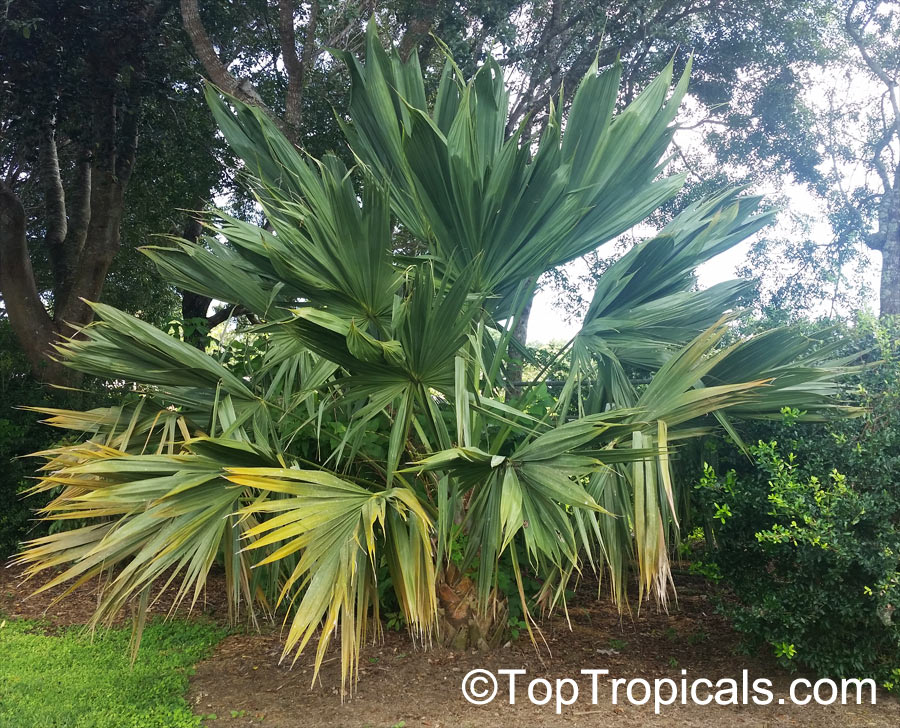Palmetto - Plant Encyclopedia Results
Top Tropicals Plant Encyclopedia
| Number of plants found: 6 |
Botanical name: Acoelorrhaphe wrightii
Common names: Paurotis, Silver Saw Palmetto, Everglades Palm
Family: Arecaceae / Palmae
Origin: Indies, Bahamas, Central and South Florida.







The leaves of the Acoelorraphe wrightii (Paurotis) are light green color, palmate and pinnate. Although it is a small palm, its leaves give it an especially lush and airy texture. Paurotis can tolerate salt wind and slightly salty soils. It is also known to be cold hardy to the low 30s F for a short time, but it must be covered with a blanket or a cover during those times.
It is best to keep the plants moist and then gradually reduce the amount of water as the plant matures. If you are in a cold region and want to grow this plant in a pot, you will need to make sure it is in a well-draining location. The pot should be placed in a semi-shaded area and mulch should used around the base of the pot. Regular watering and feeding should also be given throughout the growing season.
Overall, Acoelorraphe wrightii (Paurotis) is a great palm to grow in USDA zone 9-11. It requires full sun or semi-shade and regular water to thrive, making it an excellent choice for any garden, especially near a seaside location.
Botanical names: Sabal minor, Sabal etonia
Common names: Blue Palm, Blue Palmetto, Dwarf Palmetto, Scrub Palm
Family: Arecaceae / Palmae
Origin: South Eastern USA






Blue-stem, is a small fan palm with a trunk that remains below ground. Depending on age and growing conditions, the leaves can be anywhere from 1-5 ft in length and width. Prefers partial sun and can tolerate light shade. Prefers moist soils but can tolerate drought. Hardy in zones 8-10. Some varieties are hardy to Zone 7. Blue-stem palm is sometimes killed above ground by freezing weather, but re-sprouts the following spring.
Botanical name: Sabal sp.
Common name: Palmetto
Family: Arecaceae / Palmae
Origin: Mexico, Central America, South Eastern USA







Botanical name: Sabal yapa
Common names: Bay Palmetto, Thatch Palm
Family: Arecaceae / Palmae
Origin: Cuba, Mexico, Central America






The Sabal yapa is a small tree reaching 10-20 feet in height, with a slender trunk and fan-shaped leaves of deep and narrow, drooping segments. Native to Cuba, Mexico, and Central America, this palm grows into a mature, cold hardy plant that can tolerate temperatures as low as 30s degrees F for a short time. This palms well-known for its tolerance for seaside locations, making it well suited for areas near oceans, as it is salt tolerant. With easy germination, fast growth, and low maintenance requirements, the Sabal yapa is a perfect fit for gardens in USDA Zones 9-11.
To ensure a happy, healthy Sabal yapa, ensure it receives full sun, along with regular water. During the summer months, be sure to water it frequently and deeply, though it can withstand moderate drought. If planting in a colder region, place the Sabal in a pot, as this will help you bring it indoors during cold weather, providing it with additional protection. During the warmer months it will appreciate hanging baskets and small pots if brought indoors as well as full sun exposure, though keep it away from direct winds that may dry out its fronds. Properly caring for your Sabal yapa will ensure it looks gorgeous and will make the perfect addition to any tropical or subtropical garden.
Botanical names: Serenoa repens, Sabal serrulata
Common name: Saw Palmetto
Family: Arecaceae / Palmae
Origin: South East USA






Saw palmetto is a small hardy fan palm whose stem usually remains below ground or runs just along the surface. An especially attractive form with silvery-blue leaves occurs along the Atlantic coast in Florida and is the form most often grown in gardens and landscapes. Prefers full sun, but can tolerate partial sun. Prefers moist, but well drained position. Very tolerant of coastal exposure.
This palm is highly valued for its medicinal properties. Seeds of Saw Palmetto are widely used in traditional medicine to make an extract for curing prostate problems. Tons of Palmetto seeds are collected in Florida every year for medical industry.
Botanical name: Sabal palmetto
Common names: Sabal Palm, Cabbage Palm
Family: Arecaceae / Palmae
Origin: South Eastern USA






Highly versatile and will adapt to a variety of sun and soil conditions. The cabbage palm is a medium sized spineless, evergreen palm with an unbranching trunk and very large, fan-shaped leaves that form a circular crown. When the palm is young, the gray-brown trunk is rough and covered with the old boots of leaf stalks. These stalks fall away, revealing the trunk as it matures.
Use link to repeat this search:
https://toptropicals.com/cgi-bin/garden_catalog/cat.cgi?find=Palmetto&search_op=and&keyword_op=and&language=e&number=10
&no_change_lang=1&user=tt&sale=1&first=0
